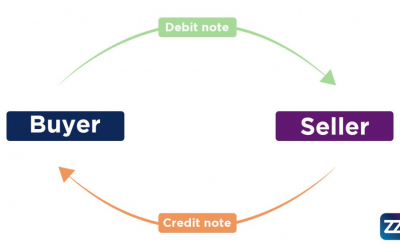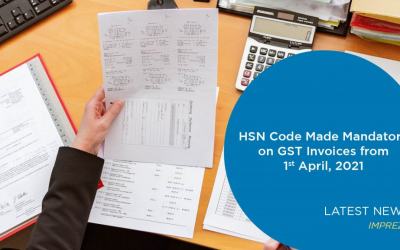 The GST Council of India has incorporated new concept of supply into the tax regime. On certain occasions, a combination of goods or services is provided together. Vendors might do this to attract more customers. At times, specific goods are grouped due to their similarities. Earlier, this mechanism was known as packed goods or services. However, the simultaneous taxable supply is now classified as mixed supply and composite supply under GST.
The GST Council of India has incorporated new concept of supply into the tax regime. On certain occasions, a combination of goods or services is provided together. Vendors might do this to attract more customers. At times, specific goods are grouped due to their similarities. Earlier, this mechanism was known as packed goods or services. However, the simultaneous taxable supply is now classified as mixed supply and composite supply under GST.
The composite supply in GST is easy to understand when compared with the Service Tax Laws. Wherein, the mixed supply is a new concept included in the GST. Thus, it is vital to understand the implications of composite supplies versus mixed supplies in today’s GST era. This article is a complete guide on mixed supply and composite supply under GST. Further, the article briefly explains the concept of supply, mixed supply, composite supply, and time of supply under GST.
What is Supply under GST?
As an economic term, supply is defined as the number of resources that a producer, vendor, laborer, firm, or a financial agent supply to the market or directly to another agent in the market. The following supplies are accountable under the new GST returns system.
- Sale
- License
- Barter
- Exchange
- Transfer
- Lease and Rental
- Disposal
Whether made business expansion, promotion, or otherwise, import of services are considered accountable under GST. Any other activity that lists under Schedule 1 of Goods and Services Tax (GST) Act 2017 is also included.
The Concept of Mixed Supply and Composite Supply under GST
The GST council has specified individual tax rates for the supply of each type of commodity. It is easier for the vendors supplying specific goods and services to understand and identify the applied GST rates. The GST Council notifies any changes in the GST rates from time to time. However, specific provisions of goods and services are interlinked to each other with no connection. For instance, a vendor might offer installation services with the supply of a washing machine or any other product.
The Goods and Services Tax pre-defines the classifications offered. Therefore, understanding the concept of mixed supply and composite supply under GST is crucial for the unified tax treatment under GST. It helps understand and classify the type of supply that helps determine the ascertained tax rates on supplied goods or services.
What is a Bundled Supply under GST?
A supply is termed as a bundled supply when goods or services are combined. The bundled supply concept is found under the Services Tax Law, where two or more services are mixed.
How to Determine a Naturally Grouped Bundled Supply?
Determining a bundled supply in an ordinary business course depends on the formal practices followed in each industry. Here’s how you can determine the nature of these goods and services.
Naturally Bundled Supply: Type-1
When buyers expect to purchase services under a single package, these packages are treated as naturally bundled supplies. For instance, a firm holding a business conference seeks a combination of hotel services along with auditorium and dining accommodations.
Naturally Bundled Supply: Type-2
When service providers in a particular industry tend to offer a service package, it is also considered a naturally bundled supply. For instance, airlines offer travel and in-flight services together as a combined package.
Naturally Bundled Supply: Type-3
The nature of services supplied in a package also helps determine whether the service is bundled or not. Often, the main service and secondary service are pooled together, making it a naturally bundled service. For instance, five-star hotels offer laundry services for guests residing in the hotel; the room rental is the main service, and the laundry service is secondary.
Naturally Bundled Supply: Other Types
Other indications for the aggregation of services in the normal business context (not an infallible aggregation):
- The package price remains the same, even when the customers opt to choose selective services.
- The products or services are sometimes advertised in a bundle.
- Sometimes the goods or services are offered in a bundle when different commodities cannot be provided individually.
What is a Composite Supply under GST?
A set of goods or services are grouped naturally and supplied with each other in a normal business context, one of which happens to be a principal supply. These goods or services cannot be provided individually. In simpler terms, a composite supply includes goods and services bundled together, entailing the natural necessities. The elements in a composite supply are usually bifurcated as Principle Supply and Dependent Supply.
- Principle Supply – It is the predominant commodity in the composite supply of goods and services.
- Dependent Supply – It is the commodity that is dependent on the principle supply of goods and services.
How to determine a Composite Supply?
The supply of goods or services is treated as a compound supply if it meets the following criteria:
- A supply that consists of two or more goods or services together.
- A natural package, commodities offered together in an ordinary course of business.
- Inseparable set of commodities.
Tax Rates Applicable on a Composite Supply
The tax rate applicable to the principal supply is the tax rate applicable to the entire set of supplies. For instance, the goods are usually transported along with insurance. Under this scenario, the goods supplied, packed materials, transportation, and insurance are a composite supply. Here, insurance and transportation cannot be provided individually without the supply of goods. Thus, goods become a principal supply under GST.
Tax liability on the entire set of supply is the tax rate applicable to the principal goods. If it does not satisfy the second condition, it is considered a mixed supply.
What is a Mixed Supply under GST?
A mixed supply under GST is a combination of individually sold goods or services grouped or manufactured together at a special price. None of the goods or services in a package under a mixed supply are dependent on each other. Under GST, the tax rates applicable to mixed supply will have the highest tax rate. For instance, a festive package sold with food items, candies, cakes, canned sodas, and dry fruits come with a single price. However, each item can also be sold individually. Since the 28% GST rate applies to soft drinks, the same rate applies to the gift box’s main supply.
How to Determine if a Supply is a Mixed Supply?
- Any supply that cannot be ruled out as a composite supply is mixed.
- Any goods or services that are separately supplied and intentionally assembled in the normal business course is a mixed supply.
- For instance, any gift box containing different goods or services is taxed differently when each commodity is sold separately.
Difference Between a Mixed Supply and a Composite Supply
Combined supply and mixed supply usually appear to be similar to each other at first glance. Either way, supplied goods or services are packed and sold at a single price. However, here’s how the GST regime differentiates the supplies.
Difference # 1 – Principle Supplies
In a composite supply, vendors can determine the significant part of the supply of goods or services. Wherein, in a mixed supply, neither buyer nor the supplier can determine the principle commodity (although the item with the highest tax rate is treated primarily for taxation).
Difference # 2 – Individually Available Supplies
In a composite supply, selling secondary service or goods separately from the main supply of goods or services does not make sense in an ordinary business course. For instance, it doesn’t make sense if a hotel separately sells towels, shampoos, ironing facilities, and other necessary facilities provided in the hotel room). In a mixed supply, each item grouped can be sold individually in the market. For instance, a grocery package entailing a variety of snacks and drinks can be sold separately.
What is Time of Supply?
Under GST, time of supply can be defined as the point of time when particular goods or services are considered to be supplied. When suppliers know the time of supply, it helps them determine and identify the due dates for the tax payment.
Time of Supply in Case of Composite Supply
The composite supply is treated as a supply of services when the principal supply is a service. For example, airline services that include transportation and food onboard. Provisions concerning the time of supply will apply to the services supplied. Likewise, the supply is treated as a supply of goods when the principal supply is a product. Provisions concerning the time of supply apply to the goods supplied.
Time of Supply in Case of Mixed Supply
A mixed supply is treated as a supply of services when the highest tax rate relates to service. Provisions concerning the time of supply will apply to the supply of the service. Likewise, a mixed supply is treated as a supply of goods when the highest tax rate relates to a product. Provisions concerning the time of supply will apply to the supply of goods.
Conclusion
Given the rolling classification of supplies as mixed supply and combined supply under GST, small businesses in India will need to review all potential packages of goods and services. Taxpayers need to understand composite supply versus mixed supply and its tax implications clearly, thus working towards the desired goal of aggregating goods and services.
Simplify your GST accounting and automate tax calculation. Implement Imprezz invoicing and billing software to comply with the GST regime. Stay ahead in the competitive business world, rid of the tedious manual accounting practices. Save time and work smart by automating financial operations. Focus on other crucial business activities while we take care of your small business accounting.
We offer a 14 days free trial software program for small businesses in India. Login to get started.


